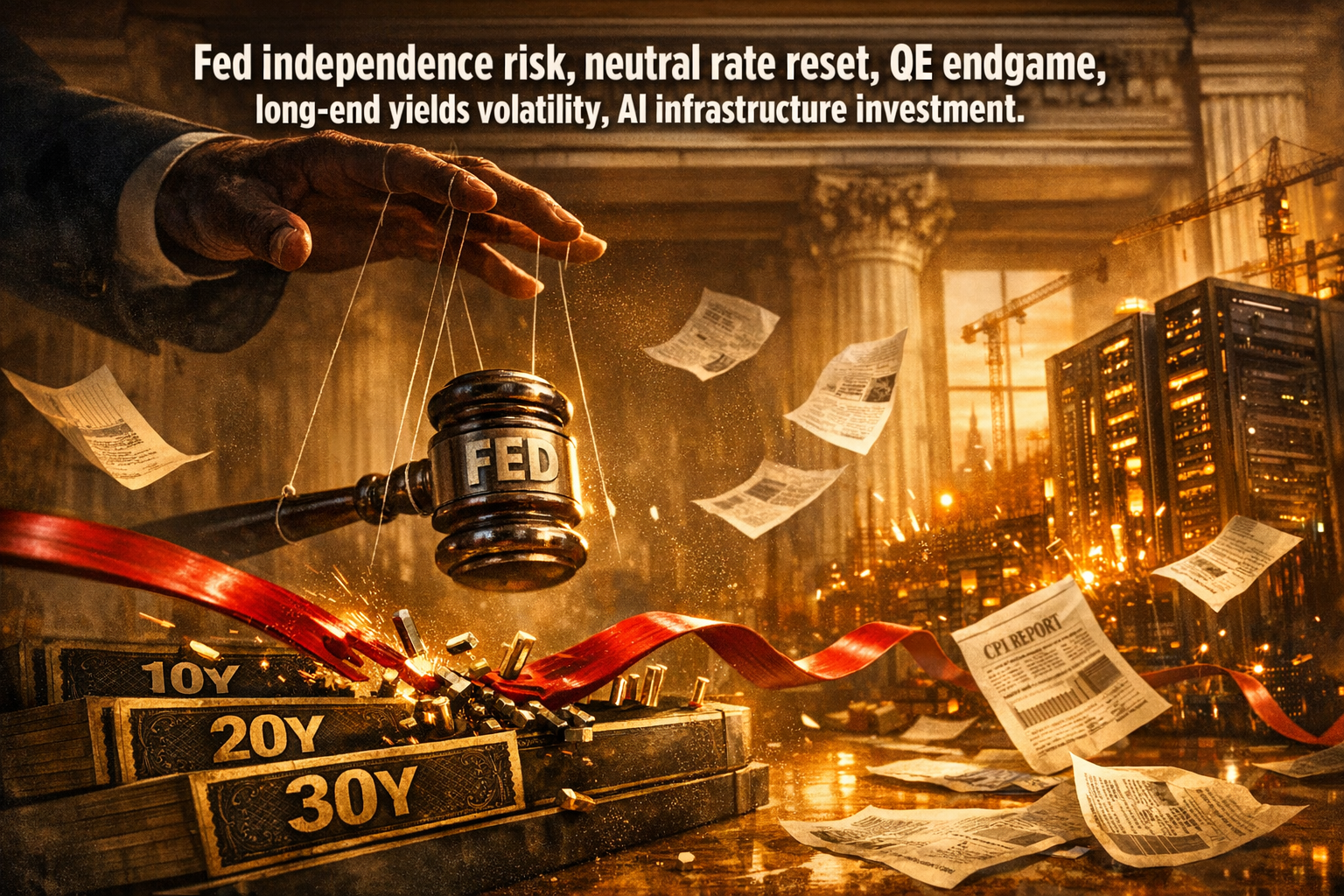● China retaliates, Trump’s footing falters.
Decreased Treasury Holdings and Trump’s Trade War: Interest Rate Fluctuations and the Development of the US Fiscal Crisis
[1] China’s Decreasing Treasury Holdings Trend and Its Significance
First, let’s address the fact that treasury holdings are steadily decreasing, and that China has been reducing its proportion of US treasury holdings in the long term.
It is interpreted that this trend has created a card for the Trump administration to respond by raising treasury interest rates in this trade war.
In other words, China’s decrease in treasury holdings is amplifying the possibility that Trump will use treasury sales as a trade war card.
[2] Development of Trump’s Trade War and Tariff War
Trump is targeting China through a tariff war and trying to use interest rate fluctuations to advance the trade war to his advantage.
Before the announcement, stock prices generally fall and treasuries, which are generally safe assets, rise in price due to buying,
Unusually, treasury interest rates are rising even as stock prices fall.
This rise in interest rates is increasing the US government’s interest burden and highlighting fiscal deficits and vast debt problems.
[3] Background to Rising Treasury Interest Rates and Financial Market Confusion
This can be explained by two main factors.
First, from a fundamental perspective, the expectation of rising prices and the deepening of fiscal deficits due to the tariff war directly affect the increase in treasury interest rates.
Second, as a technical factor, interest rate volatility is increasing as investors liquidate treasuries to avoid risk.
This phenomenon, along with the decline in the dollar index, is leading to a re-evaluation of the status of US treasuries as safe assets in the international financial market.
[4] Sales Rumors and Each Country’s Response Strategies
Among experts, there are various opinions that China sold treasuries and that Japan or hedge funds sold them.
However, what is certain is that if treasuries are sold in large quantities, treasury prices will fall and interest rates will soar,
The interest expense burden that the US government has to bear will increase even more.
In the end, it is a prevailing interpretation that selling treasuries is risky for both sides and not an easy card to use.
[5] Future Prospects and Response Scenarios
The trade war is expected to repeat a cycle of escalating and easing, and will take on a long-term hegemonic war between the US and China.
In particular, rising treasury interest rates are likely to act as a constraint preventing the Trump administration from expanding the tariff war,
The US fiscal deficit and debt burden will eventually lead to instability in the US economy as a whole.
Investors need to be careful in managing risk and adjusting positions under this background.
Summary
China’s gradual trend of decreasing treasury holdings can be seen as preparing the card of selling treasuries in Trump’s trade war.
Trump is targeting China through a tariff war, but in the process, an unusual phenomenon of rising treasury interest rates occurs along with falling stock prices.
This rise in interest rates greatly increases the interest burden due to the US fiscal deficit and vast debt problems,
It increases the burden on the US government in the event of a trade war escalation, and heralds changes in the status of US treasuries as safe assets in the international financial market.
As a result, the trade war is expected to repeat cycles of escalation and mitigation, and will have a major impact on the US economy and the global financial market as a whole.
Related Articles…
Analysis of the Causes of Soaring Treasury Bonds
Trade War and Global Economic Outlook
*YouTube Source: [경제 읽어주는 남자(김광석TV)]
– [모아보기] 관세 갈등 → 국채 금리 ‘출렁’ → 트럼프 입지는 ‘흔들’… 미국 향해 칼 뽑아든 중국

● Trump Blames Wuhan, Denies Recession
Analysis of Trump-China Relations, US Stock Market Uncertainty, and Recession Concerns
Morning Update: White House Message and Allegations of COVID Origin
COVID-19 related data has been posted on the White House Hindsight website.
The data contains information suggesting that the coronavirus may have originated from a laboratory leak, rather than from nature.
It mentions records from China’s top SARS research institute and the Wuhan Institute of Virology, emphasizing that COVID started from a single human introduction event.
This message is interpreted as a warning from the United States to China to listen to the US at the negotiating table.
Such announcements have significant repercussions for the global economy, including the economy, the US stock market, and Trump’s policies.
Afternoon Confusion: Positive Dialogue with China vs. Warning
In the late afternoon, the same White House stated in a meeting with reporters that the dialogue with China was very good.
The message was delivered confusingly with a conflicting attitude to the warning message in the morning.
These conflicting messages raise major questions about US trade uncertainty and the global economic outlook.
Trade Uncertainty and Market Instability: Impact on Stock Market and Overall Economy
According to St. Louis research data, trade-related uncertainty has soared to an all-time high.
The negative impact of uncertainty on the stock market and the overall economy is increasing, raising the possibility of stock price declines and recession in the US stock market.
Looking at past data, there are many precedents for economic recessions following periods of high uncertainty.
Recession Possibility and US Stock Market Trends
Polymarket data shows that there is a flow of the stock market peaking, falling, and then rising again.
However, the decline in the leading stock market is likely to be an early indicator of a recession.
It shows a similar pattern to the 2008 example, where a recession is officially confirmed after a stock market crash.
Trump’s Attempt to Cut Interest Rates and Government Financial Dilemma
The reason why Trump strongly demands interest rate cuts is to reduce the massive short-term bond burden of the US government.
If interest rates fall during a recession, it is expected to reduce annual interest costs, but at the same time, financial deterioration is concerned due to corporate insolvency, reduced tax revenue, and rising unemployment rates.
In other words, interest rate cuts do not simply lead to a reduction in interest costs, but act as a complex problem that affects the government’s financial burden and global economic stability.
In this situation, there are also signs that the Trump administration is trying to deliberately create a recession atmosphere through economic policies.
< Summary >
After Trump sent a strong message to China through allegations of COVID origin, he sent a conflicting message on the same afternoon by positively expressing dialogue with China.
At the same time, trade uncertainty has soared to an all-time high, increasing concerns about the possibility of a recession in the US stock market and the overall global economy.
In addition, the Trump administration is trying to reduce the government's interest burden through short-term interest rate cuts, but is facing a dilemma of having to consider the problem of financial deterioration that will occur during a recession.
Key keywords such as economy, US stock market, Trump, interest rates, and recession are repeatedly mentioned in this analysis, showing that uncertainty in the global economy is increasing.
[Related Posts…]
Trump Policy Analysis
Interest Rate Trend Forecast
*YouTube Source: [Maeil Business Newspaper]
– [홍장원의 불앤베어] 트럼프는 경기침체를 원하지 않는다. “코로나는 중국 우한에서 만들어졌다”



